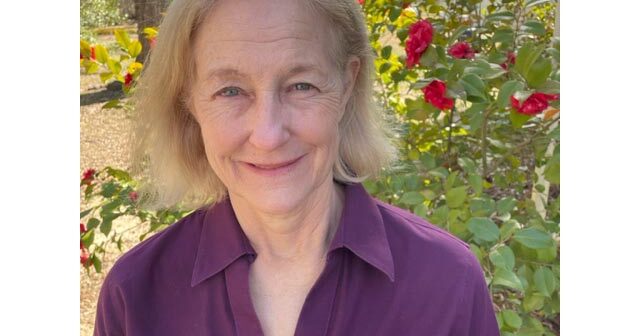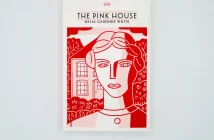The following article was originally posted on the Literary Ladies Guild website.
Ellen Glasgow (April 22, 1873 – November 21, 1945) was one of the South’s most eminent writers of her day. Today she’s far less known than contemporaries like Edith Wharton and Willa Cather, despite having created an impressive body of work.
Ellen’s output included novels, collections of short stories and poems, a treatise on how to write fiction, and an autobiography. She was also the recipient of the Pulitzer Prize in 1942. Today, if she is remembered for anything, it’s more for her influence than her literary talent.
It’s well worth rediscovering this often overlooked writer.
Early years
Ellen Anderson Gholson Glasgow was born in Richmond, Virginia to Francis Thomas and Anne Jane Gholson Glasgow. Her father, of Scotch-Irish descent, was from the Shenandoah Valley and studied at Washington and Lee College. Her mother was from an upper-crust family in Cumberland County with many illustrious ancestors.
The dynamics of family life had an enormous influence on the young Ellen. Her mother, who gave birth to ten children, suffered from nerves and depression. Her father, a rough, blunt man who had affairs, ran Tredegar Iron Works, which supplied most of the munitions during the Civil War.
Ellen’s parents decided her health was fragile and she was too headstrong for school, so she was educated at home. Lucky for this smart, curious, young lady, she had access to her father’s library and read voraciously: history, literature, and philosophy.
Over the years she was influenced by thinkers like Freud, Schopenhauer, and Darwin. Asserting her independence, she told her parents she would not make her debut, a right of passage for aristocratic southern young ladies.
Ellen was twenty when her mother died. This had a profound impact on her, and she never fully forgave her father for his ill-treatment of her mother.
Reshaping the literature of the South
Ellen Glasgow’s writing sparked a reshaping of the literature of the South. Her novels studied the changing culture and the roles of men and women, leaving behind the sentimental stories of olden times: the plantation houses surrounded by magnolias in the distance, the slaves toiling in the fields, all with the backdrop of the Civil War and Reconstruction.
Most of her books, set in Virginia, were social histories of the region as it changed from an agrarian to an industrial society and women’s roles transformed; she can be considered an early feminist who certainly resented the strictures placed on her by society.
Ellen left a generous body of work: some twenty novels; books of short stories and poems; essays; articles; and a memoir and collection of letters published posthumously. See her full bibliography.
In 1940 Ellen was awarded the Howells Medal of the American Academy of Arts and Letters. In 1942, she was awarded the Pulitzer for her novel, In This Our Life. By then, she was aging, suffering from poor health, and winding down as a writer. In This Our Life was released as a 1942 film directed by John Huston, starring Bette Davis and Olivia de Havilland.
A memorable quote from In This Our Life: “Why do all of us, every last one, have to go through hell to find out what we really want?”
The Encyclopedia of Southern Culture cites seven novels as her best efforts. The Deliverance (1904) depicts class conflict after the Civil War; her trilogy about women: Virginia (1913), Life and Gabriella (1916), and Barren Ground (1925) – stories about strong females who rebel against their roles in society. Further, she wrote three comedies of manners: The Romantic Comedians (1926), They Stooped to Folly (1929), and The Shelter of Life (1932).
Troubles in life and love
In life, suffering can often lead to a heavy heart, a soulful depth of experience, and — good writing. Ellen Glasgow had more than her share of troubles. In addition to having little respect for her father and losing her beloved mother at such an impressionable age, she was a sickly child who battled debilitating deafness during her adult years. She lost her favorite sister Cary to cancer and later, her brother Frank and brother-in-law George McCormack (Cary’s husband) to suicide.
In her twenties, she had an affair with a married man we only know as Gerald B., who later died. Ellen’s love life continued to be unlucky. For years she was quietly engaged to handsome Richmond attorney Henry Watkins Anderson, who was deeply involved with The Red Cross during World War II.
Anderson was assigned to the Red Cross Commission in the Balkans, where he began an affair with the beautiful Queen Marie of Romania (who also happened to be married). After some time, when Anderson returned to Richmond, he was still smitten with the Queen and couldn’t stop talking about her. Despairing, Ellen overdosed on sleeping pills one night. Yet she survived, and out of the ashes of misery came creativity. She kept writing and her reputation grew.
Animal advocacy
Ellen had a great passion for social justice and was also very involved in animal advocacy. One of her charities was the Richmond SPCA. She encouraged many prominent citizens like Douglas Southall Freeman and James Branch Cabell to donate and get involved, and she was president of the board for twenty-one years, right up until her death; she was the driving force behind opening the city’s first shelter.
According to the SPCA website, Ellen bequeathed the bulk of her estate and the rights to her work to this organization which gave them the seed for their endowment. All this was left in honor of her Sealyham Terrier Jeremy.
Ellen Glasgow’s legacy
Ellen had a wealth of interesting friends, including Allen Tate, James Branch Cabell, and H.L. Mencken. Her friend Marjorie Kinnan Rawlings was writing her biography but died before its completion.
This erudite, well-traveled, glass-ceiling-breaker was known for her grand entertaining at her Greek Revival mansion at 1 West Main in downtown Richmond. Once she even had a party for Gertrude Stein and Alice B. Toklas while they were on their American tour.
(An interesting note, in 2024, her house went up for sale for $1.395 million — 11,000 square feet, with all the beautiful historical details intact)
Biographer Susan Goodman described Ellen Glasgow’s style as poetic realism. She influenced writers like Eudora Welty, Robert Penn Warren, and William Faulkner. Here’s hoping that a reconsideration of her works spreads beyond literary buffs and researchers.
Ellen Glasgow died in her sleep on November 21, 1945, likely from heart disease. She is buried in Richmond’s historic Hollywood Cemetery with her beloved Jeremy alongside. Her epitaph reads: “Tomorrow to Fresh Woods and Pastures New.”
. . . . . . . . . .



